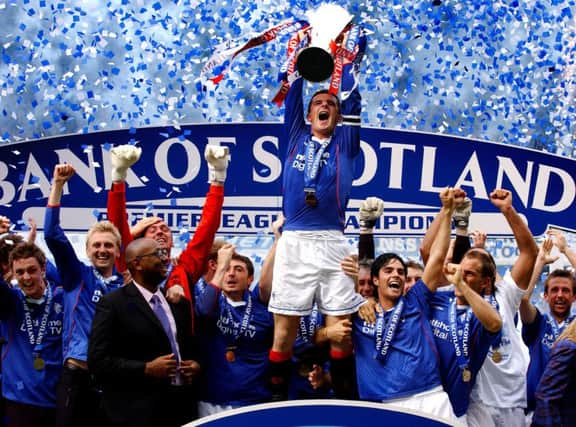Andrew Smith: Rangers were heading for rocks before Craig Whyte


For too long, too many followers of the Ibrox club have attempted to paint the “oldco” Rangers’ demise as being the sole responsibility of Craig Whyte. They have sought to promote the narrative that, had he never appeared on the scene, Rangers would not have suffered liquidation and been forced to reform in the Third Division.
Yesterday’s ruling by the Court of Session in Edinburgh lays bare that Rangers were heading for the rocks long before anyone in the Scottish game had ever heard of Whyte. It also makes plain that, had David Murray remained in charge and not sold the club to Whyte for £1 in 2011, the old Ibrox club was still well and truly finished. All that would have been different would have been the timing of its immolation.
Advertisement
Hide AdAdvertisement
Hide AdMurray found the club unsellable to all but Whyte because of the so-called “big tax case” that hung over it. It would have continued to cast a shadow until today... when a £40 million tax bill would have been renewed. Murray, and his bankers, would not/could not have stumped up for that, administration would have followed and no CVA could have been forthcoming because HMRC, the main creditor, votes against these in football as a matter of course.
It was a case of persistence paying off for HMRC. Murray had earlier won a First Tier Tribunal in 2012, on a 2-1 majority, before HMRC largely lost its first appeal in July 2014, but a change of legal tactics saw it succeed. A counter-appeal remains possible but it is hard to escape the sense that Murray is responisble for Rangers’ demise. Tax and national insurance should have been paid on the sums players at the club received as EBTs between 2001/02 and 2009/10.
There could be a whole heap of fall-out from yesterday’s “common sense” judgment, bearing in mind that current chairman Dave King and Paul Murray both sat on the board that sanctioned the EBT scheme.
The independent commission chaired by Lord Nimmo Smith two years ago into the use of EBTs by Rangers – and the failure of the club to disclose side-letters and payments – arrived as something of a fudge because the first tier tax tribunal into Rangers’ EBT use that delivered a verdict in 2012 had stopped short of declaring the “loans” as sham.
Lord Nimmo Smith found Rangers guilty of a “deliberate” breaking of the, then, SPL, and SFA rules through failing to disclose to these bodies all payments made to players. A fine of £250,000 was imposed. Yet, Lord Nimmo danced on the head of a pin to avoid stating that Rangers had cheated between 2001 and 2010, even though that would be the “common sense” understanding of deliberately breaking the rules.
Rangers wriggled off the hook over the side- letters potentially leading to improper player registrations, which could have caused results obtained with these players to be wiped.
In the first instance, they did so because it emerged that the SFA, possibly in order to protect itself from any delayed litigation, would not essentially “back date” voiding of players’ registrations.
Looking at this issue of legitimacy in a broader sense, Nimmo Smith is again made to look rather unconvincing. Rangers’ title wins during their EBT years did not come into question, he said in 2013, because the club gained no sporting advantage from failing to disclose the payments and accompanying side letters as, in the main, these did not contravene tax law.
Advertisement
Hide AdAdvertisement
Hide AdNow, it has transpired that they did. The only conclusion to be drawn is that Rangers gained a considerable sporting advantage by withholding monies due to the Revenue on a widespread, systematic basis.
By using EBTs they were able to recruit and retain players they would have otherwise been unable to afford.
There is likely to be little appetite for putting right the wrongs of a morally dubious scheme that sought to spare rich individuals from meeting their tax obligations. However, there should be.
At the very least, the titles Rangers won in 2003, 2005, 2009 and 2010 should be declared void. These honours were won in the most dishonourable fashion.
And, almost as if yesterday was considered a bad day to bury bad news, the current Rangers announced losses of £7.5m for the year to June.